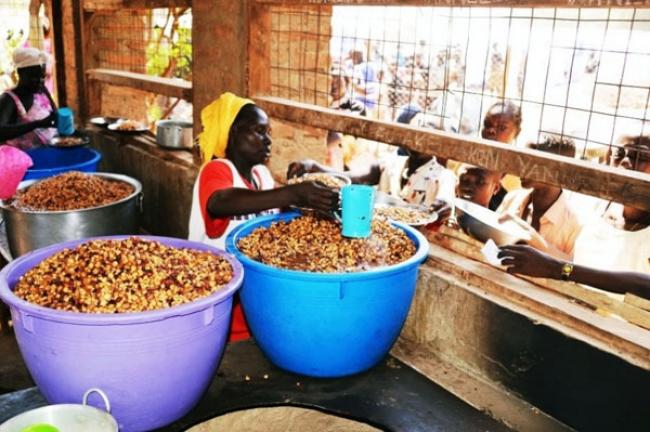15 Nov 2014, 08:35 am Print

The 50 per cent ration cut comes as WFP struggles to raise $38 million to cover its refugee operations for the next six months. This includes $15.5 million that is urgently required to address food needs through January 2015.
“Cutting rations is the last resort and we’re doing it to eke out the limited food we currently have available over the next ten weeks, as we continue to appeal to the international community to assist,” said Paul Turnbull, WFP Deputy Country Director for Kenya, in apress release today.
“WFP has done everything it can to avoid reducing rations, using all means at our disposal to cover critical funding gaps,” he added.
Each month, WFP distributes 9,700 metric tons of food for some 500,000 refugees in Kenya, at a cost of almost $10 million.
Refugees are given a food ration of cereals, pulses, vegetable oil, a nutrient-rich maize-soya blend and salt, providing 2,100 kilocalories per person per day, the recommended emergency ration. From mid-November, the refugees will receive a food ration equivalent to 1,050 kilocalories per day.
“WFP depends entirely on voluntary contributions from donors who generously support food assistance for refugees,” said Valerie Guarnieri, WFP’s Regional Director for East and Central Africa.
“With competing humanitarian needs around the world, we realize budgets are tight, but nonetheless, we must call for more funding so that we can work with the Office of the UN High Commissioner for Refugees (UNHCR) to meet the urgent needs of these vulnerable people, who have no other means of support,” Guarnieri said.
WFP expects to distribute half-rations until the end of January 2015, when a shipment of food assistance donated by the United States – sufficient for six weeks’ food requirements – is expected to arrive.
In 2014, international donors have contributed $68.8 million to support food assistance for refugees in Kenya, the agency said.
WFP also provides specialized fortified foods to young children, as well as to pregnant women and nursing mothers, to stave off malnutrition. In addition, primary and pre-primary schoolchildren receive porridge, which helps them concentrate on their classes and acts as an incentive to their families to send them to school. So far, these activities are not expected to be affected by the cuts, the agency said.
Scores of South Sudanese refugees have crossed into Kenya following the outbreak of civil war this past December, while in Somalia, refugees fled over two decades of conflict.
WFP, through its partner, the Lutheran World Federation, provided three cooked meals to refugees from South Sudan at Kakuma Camp, Kenya. Photo: WFP/Rose Ogola
- USD 5,000 fine for illegal entry: US unveils toughest immigration penalty yet
- Bangladesh: Former PM Khaleda Zia’s emergency medical evacuation to London delayed. Know the reason
- Mystery killing in Gaza: Key anti-Hamas leader Yasser Abu Shabab dead
- Washington DC shooting fallout: USCIS indefinitely halts Afghan immigration pending security and vetting review
- Trump accepts Xi’s invitation for Beijing visit during telephone interaction: Talks cover trade, Ukraine, and Fentanyl



-1763561110.jpg)


